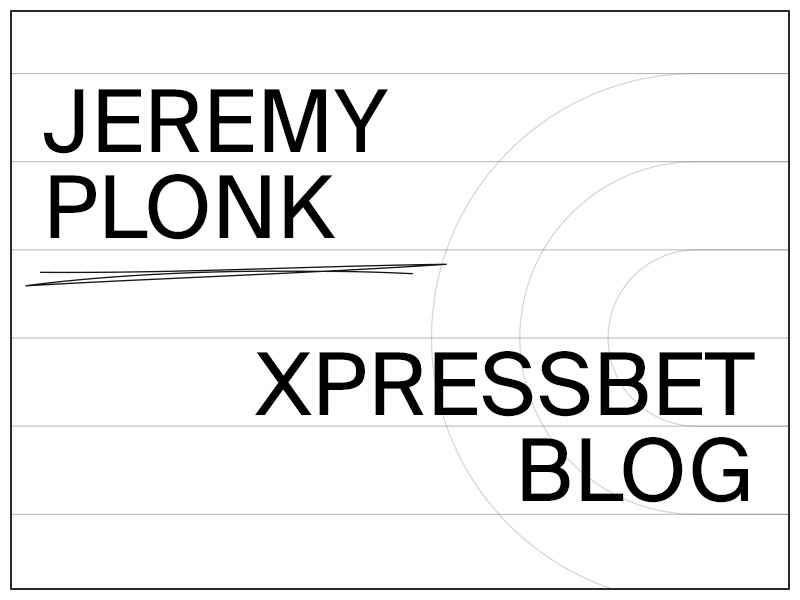by Jeremy Plonk
June 20, 2017

While handicapping the horse races is not a pastime as difficult as some project it to be, it’s not as simple as showing up at the movie theater, forking over $9 for some M&Ms and taking your seat for 90 minutes. In this pursuit, you're NOT upset if someone gives away the ending; in fact, you hope that they do – with accuracy!
Yesterday, it was Father’s Day across America and kids from coast to coast shared the day with proud pops everywhere. My daughter took good care of me, and I hope you were blessed to have had the same experience. Since I work in the racing game, Father’s Day isn’t necessarily a day of the year that we flock to the track. I imagine bakers don’t line up for Fasthnacht and Donut Days on that same line of thinking. Nonetheless, I was highly impressed by the images of packed houses at racetracks all over this great country. Taking Dad to the track remains a big deal, and I love that.
But one point has to be made when we talk about the difficulties that horse racing faces in the current world in which we live. True, there is no longer a monopoly on gambling. True, technology has quickened the pace in which we demand our entertainment. Also true, we live in a society that purchases everything on credit and are pitching a game that essentially demands cash by law. Still true, many take offense to entertainment on the backs of animals. All of these are legitimate concerns and rationales when explaining the challenges horse racing faces. But, perhaps because it’s politically incorrect to say so, or just hurts to discuss in frank terms, another major factor is the lack of fathers in the home today.
A day like Father’s Day, when everyone goes out of their way to do what Dad wants to do, really makes that a stark visual when you see packed grandstands on a Sunday in June for no other reason.
If betting the horses is a game statistically followed closer by men than women, which it is, then it stands to reason that single mothers won’t bring out the same numbers to the track as households with men. Some of my best friends in the game were raised by single moms, and did, indeed, make their way to horse racing. This is not a discussion about personal experiences, nor by any means a commentary on single-parent homes; rather, it’s a discussion of math and population. Over the last 50 years, the US Census Bureau reports that the percentage of children living in two-parent homes has dropped from 88 percent to 69 percent as of 2016. Of single-parent homes, moms take the leadership role in more than 82 percent of those situations compared to single fathers.
Consider the percentages in context to population growth as well. There were 193 million people in the US in 1966, according to the Census Bureau, and 322 million in 2016. There are a staggering number of children today growing up in homes without fathers. What might Father’s Day at the racetrack look like in, say, 10 years…20 years…30 years?
The discussion of Father’s Day as it pertains to horse racing is not to make any sort of political or judgmental statement. It is to simply note the very chief point that there is a serious lack of mentors out there to pass down the game’s intricacies. The reason we started Night School, the national online fan education program, seven years ago was to bridge the gap of mentorship. We used to joke that we’re everyone’s Uncle Morty. You know, the family member who loved to bet the ponies and passed it down to the next generation. That’s always been squarely in my mind…to help mentor others in pulling up a cyber seat next to future players on the world-wide-apron of sorts.
Father’s Day reminded us what a racetrack can look like when generations team together to pack the house. But the other 364 days a year, and the real Census data out there, shows us that in order for handicapping the races to be passed down to the next generation, we’re all going to have to pitch in and take the place of a dwindling number of dads in households across America.
It’s not a fun point to talk about, or even admit. But it’s real.